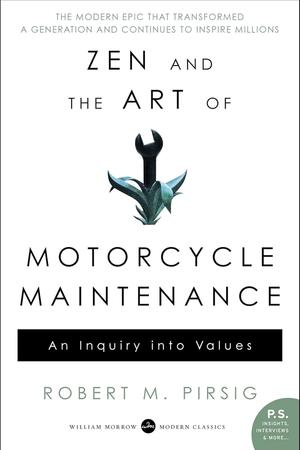
Zen and the Art of Motorcycle Maintenance by Robert M. Pirsig: Summary & Notes
by Robert M. Pirsig
In One Sentence
A philosophical journey exploring Quality—what it means to care about your work and life, bridging the gap between rational analysis and romantic intuition.
Key Takeaways
- Quality cannot be defined, but we know it when we see it
- The classic vs romantic split: analysis vs intuition
- Care about your work—engagement matters
- Gumption traps: things that drain your motivation
- Peace of mind is the foundation of Quality
- Technology and spirituality aren't opposed
Summary
Pirsig details his theory about what defines good, or in his terminology, “Quality”. He tells it as a series of smaller philosophical discussions, taking place during a motorcycle road trip he takes with his son and another couple through Western America. I liked the details about motorcycle maintenance. I liked the travel writing. I also liked the discussion of the value of technology, and the differences between “classical” and “romantic” approaches to life. I did not like the philosophy, which unfortunately takes up the majority of the book. I suspect it’s mostly due to my general dislike of philosophy, save for that which is direct and actionable (ie. Stoicism). The book has been popular for over 40 years.
Who Should Read This Book
- Philosophy enthusiasts
- Anyone seeking meaning in work
- Motorcycle and DIY enthusiasts
- Readers who enjoy challenging, reflective books
FAQ
What is Zen and the Art of Motorcycle Maintenance about?
It's a philosophical novel following a motorcycle trip while exploring the concept of "Quality." Pirsig argues that caring about your work—whether fixing a motorcycle or living a life—is the source of meaning and excellence.
📖 Chapter-by-Chapter Breakdown
Click to expand the full detailed notes for every chapter →
📖 Chapter-by-Chapter Breakdown
Click to expand the full detailed notes for every chapter →
Notes
- “What’s new” is an interesting question, but a better question is “what is best?”.
- Physical discomfort is important only when the mood is wrong.
- When you want to hurry something, that means you no longer care about it and want to get on to other things.
- The classic style is straightforward, unadorned, unemotional, economical and carefully proportioned. Its purpose is not to inspire emotionally, but to bring order out of chaos and make the unknown known.
- It is not an esthethically free and natural style. It is esthetically restrained. Everything is under control. Its value is measured in terms of the skill with which this control is maintained.
- To a romantic this classic mode often appears dull, awkward and ugly, like mechanical maintenance itself. Everything is in terms of pieces and parts and components and relationships.
- Persons tend to think and feel exclusively in one mode or the other and in doing so tend to misunderstand and underestimate what the other mode is all about.
- When analytic thought, the knife, is applied to experience, something is always killed in the process. That is fairly well understood, at least in the arts.
- A motorcycle functions entirely in accordance with the laws of reason, and a study of the art of motorcycle maintenance is really a miniature study of the art of rationality itself.
- That is induction: reasoning from particular experiences to general truths.
- Deductive inferences do the reverse. They start with general knowledge and predict a specific observation.
- Scientific questions often have a surface appearance of dumbness for this reason. They are asked in order to prevent dumb mistakes later on.
- An experiment is never a failure solely because it fails to achieve predicted results. An experiment is a failure only when it also fails adequately to test the hypothesis in question, when the data it produces don’t prove anything one way or another.
- Sometimes it’s a little better to travel than to arrive.
- You are never dedicated to something you have complete confidence in. No one is fanatically shouting that the sun is going to rise tomorrow. They know it’s going to rise tomorrow. When people are fanatically dedicated to political or religious faiths or any other kinds of dogmas or goals, it’s always because these dogmas or goals are in doubt.
- Mountains should be climbed with as little effort as possible and without desire. The reality of your own nature should determine the speed. If you become restless, speed up. If you become winded, slow down. You climb the mountain in an equilibrium between restlessness and exhaustion.
- Any effort that has self-glorification as its final endpoint is bound to end in disaster.
- Anxiety, the next gumption trap, is sort of the opposite of ego. You’re so sure you’ll do everything wrong you’re afraid to do anything at all. Often this, rather than laziness, is the real reason you find it hard to get started.
- The best way to break this cycle, I think, is to work out your anxieties on paper. Read every book and magazine you can on the subject.
- My favorite cure for boredom is sleep. It’s very easy to get to sleep when bored and very hard to get bored after a long rest. My next favorite is coffee.
- Impatience is close to boredom but always results from one cause: an underestimation of the amount of time the job will take.
- Impatience is best handled by allowing an indefinite time for the job, particularly new jobs that require unfamiliar techniques; by doubling the allotted time when circumstances force time planning; and by scaling down the scope of what you want to do.
- Because we’re unaccustomed to it, we don’t usually see that there’s a third possible logical term equal to yes and no which is capable of expanding our understanding in an unrecognized direction. We don’t even have a term for it, so I’ll have to use the Japanese mu.
- Mu means "no thing." Like “Quality" it points outside the process of dualistic discrimination. Mu simply says, "No class; not one, not zero, not yes, not no." It states that the context of the question is such that a yes or no answer is in error and should not be given. “Unask the question” is what it says.
- You want to know how to paint a perfect painting? It’s easy. Make yourself perfect and then just paint naturally. That’s the way all the experts do it. The making of a painting or the fixing of a motorcycle isn’t separate from the rest of your existence. If you’re a sloppy thinker the six days of the week you aren’t working on your machine, what trap avoidances, what gimmicks, can make you all of a sudden sharp on the seventh? It all goes together.
- Technology is blamed for a lot of this loneliness, since the loneliness is certainly associated with the newer technological devices, TV, jets, freeways and so on, but I hope it’s been made plain that the real evil isn’t the objects of technology but the tendency of technology to isolate people into lonely attitudes of objectivity. It’s the objectivity, the dualistic way of looking at things underlying technology, that produces the evil. That’s why I went to so much trouble to show how technology could be used to destroy the evil. A person who knows how to fix motorcycles with Quality is less likely to run short of friends than one who doesn’t. And they aren’t going to see him as some kind of object either. Quality destroys objectivity every time.
- My personal feeling is that this is how any further improvement of the world will be done: by individuals making Quality decisions and that’s all.
- We do need a return to individual integrity, self-reliance and old-fashioned gumption.
You Might Also Like
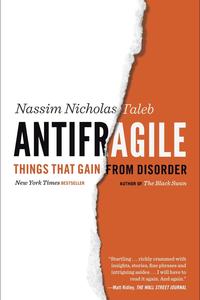
Antifragile by Nassim Nicholas Taleb
Nassim Nicholas Taleb

The Black Swan by Nassim Nicholas Taleb
Nassim Nicholas Taleb
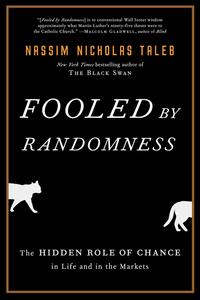
Fooled by Randomness by Nassim Nicholas Taleb
Nassim Nicholas Taleb
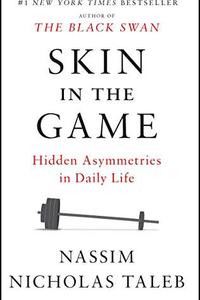
Skin in the Game by Nassim Nicholas Taleb
Nassim Nicholas Taleb
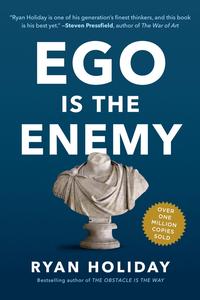
Ego is the Enemy by Ryan Holiday
Ryan Holiday